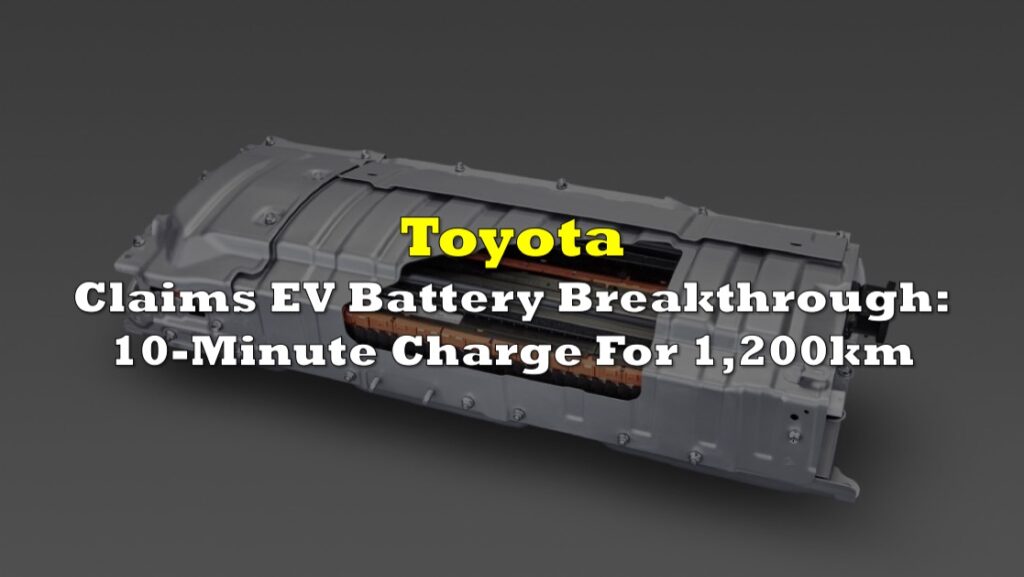The Biden administration has announced plans to loan nearly $671 million to Aspen Aerogels Inc., a Massachusetts-based company specializing in thermal barriers for electric vehicle (EV) batteries, to support the construction of a new manufacturing facility in Georgia. This loan, announced by the U.S. Department of Energy on Wednesday, is part of a larger effort by the administration to foster the development of a domestic supply chain for electric vehicles, bolstering both environmental and economic goals.
The $671 million loan is part of the Advanced Technology Vehicles Manufacturing (ATVM) Loan Program, a key element of the Biden administration’s broader initiative to secure the domestic production of advanced technology, especially within the clean energy and electric vehicle sectors. The program’s primary goal is to build a robust supply chain for electric vehicles, reducing reliance on foreign imports for critical components and ensuring that the U.S. is at the forefront of the EV revolution.
“We are making sure that the supply side is made here in this country,” said Jigar Shah, director of the Energy Department’s Loan Programs Office. Shah emphasized that bringing the EV supply chain to the U.S. is a significant priority for the administration, aligning with its broader goals of boosting American manufacturing and achieving climate objectives.
Aspen Aerogels’ new facility, to be located in Register, Georgia, near Savannah, will produce thermal barriers designed to prevent battery fires in electric vehicles. These barriers are crucial for ensuring the safety and longevity of lithium-ion batteries, which can sometimes overheat and lead to fires if not properly insulated. Aspen has already secured contracts with major automakers, including General Motors, Toyota, and others, to supply its thermal barrier technology.
The strategic location of the plant in Georgia is noteworthy. Georgia has become a key player in the nation’s shifting political landscape, serving as a critical battleground state in recent elections. Investments like this one could have significant political and economic implications, as they promise job creation and infrastructure development in a state with growing political importance.
Aspen Aerogels has already committed $300 million to the new plant, with the total cost of the project expected to approach $1 billion. The plant is projected to begin operations by late 2026 or early 2027, and it will have the capacity to produce enough thermal barriers to supply more than 2 million electric vehicles annually.
Aspen’s Chief Executive Officer, Donald Young, emphasized the importance of the Energy Department’s loan for the company’s ambitious expansion.
“It’s a little hard to imagine how we’d do this without the support of the LPO (Loan Programs Office) program,” Young said. “Having access to this level of capital would be challenging for us.”
The U.S. has been lagging behind other nations, notably China, in terms of battery production and the broader EV supply chain. China currently dominates the market for lithium-ion batteries and many of the raw materials needed for their production, creating potential vulnerabilities in the U.S. clean energy transition. Biden’s focus on fostering a domestic supply chain aims to reduce this reliance and create jobs in key industries.
The decision to loan Aspen Aerogels this significant sum is part of a larger pattern of public investments intended to jumpstart domestic manufacturing capabilities in EV production. It follows other substantial loans and grants directed at battery manufacturers and EV makers across the country as the U.S. government seeks to stimulate private investment in green technologies.
“We’ve taken very seriously the onshoring of the entire supply chain,” Shah said. “The reality is that in order to meet our climate goals, we need to have a domestic manufacturing base for the components that go into electric vehicles.”
One of the critical challenges that EV manufacturers face is ensuring the safety and efficiency of the batteries that power their vehicles. Lithium-ion batteries, though widely used for their energy density and efficiency, can pose risks if they overheat. This phenomenon, called “thermal runaway,” occurs when cells within the battery heat up uncontrollably, leading to fires or explosions.
Aspen Aerogels’ thermal barriers are designed to mitigate this risk by providing a layer of insulation between the individual battery cells, preventing the heat from spreading and ensuring that the battery remains stable. With the rise in EV production, the demand for such safety technologies has also grown exponentially.
Aspen’s partnership with major automakers underscores the industry’s focus on addressing these safety concerns. By supplying materials for millions of vehicles, the Georgia plant will play a vital role in supporting the safety and efficiency of EVs on American roads.
This loan fits squarely within the Biden administration’s broader efforts to combat climate change by promoting clean energy technologies, reducing greenhouse gas emissions, and transitioning the U.S. economy away from fossil fuels. The president has made the expansion of electric vehicle infrastructure a key priority in his climate agenda, with the goal of having electric vehicles make up 50% of all new car sales by 2030.
The administration has also announced plans to invest in charging infrastructure and provide incentives for consumers to purchase electric vehicles. These measures are designed to create a comprehensive ecosystem for EVs in the U.S., one that includes not only the vehicles themselves but also the necessary infrastructure and supply chain components.
Information for this story was found via Bloomberg and the sources and companies mentioned. The author has no securities or affiliations related to the organizations discussed. Not a recommendation to buy or sell. Always do additional research and consult a professional before purchasing a security. The author holds no licenses.









